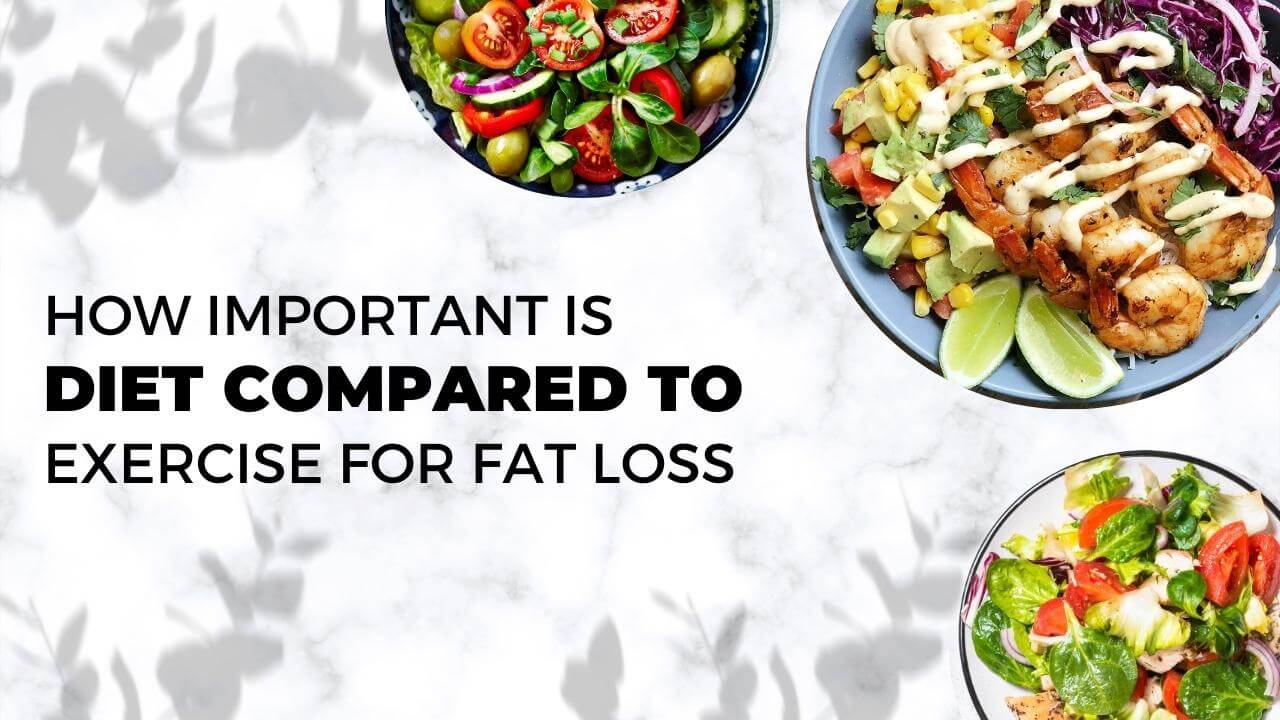Other Links
How to maximise exercise and diet
Health & Fitness Tips | Fri, 31 Mar 2023
Maximizing exercise and diet for fat loss requires a combination of regular physical activity and a healthy, balanced diet. Here are some tips to help you achieve your weight loss goals:
- Set realistic goals: Setting achievable goals can help you stay motivated and on track. Set small, achievable goals that you can work towards, and celebrate your successes along the way.
- Focus on strength training: Strength training can help you build muscle, which can boost your metabolism and help you burn more calories throughout the day. Aim to do strength training exercises at least two to three times per week.
- Incorporate high-intensity interval training (HIIT): HIIT involves alternating between high-intensity exercises and short periods of rest. It can help you burn more calories in a shorter amount of time than traditional cardio exercises. Aim to do HIIT workouts two to three times per week.
- Eat a balanced diet: A healthy, balanced diet that includes plenty of whole foods like fruits, vegetables, lean protein, and healthy fats can help you lose weight and improve your overall health. Avoid processed foods, sugary drinks, and foods high in saturated fats.
- Stay hydrated: Drinking plenty of water can help you feel full and reduce your appetite. Aim to drink at least 8-10 glasses of water per day.
- Get enough sleep: Lack of sleep can disrupt your metabolism and increase your risk of weight gain. Aim to get 7-9 hours of sleep per night.
Remember, sustainable weight loss takes time and effort. Be patient, stay consistent, and focus on making healthy lifestyle changes that you can maintain over the long term.
What are the best exercises to lose body fat?

There is no single best exercise to lose body fat, as the most effective approach depends on various factors, such as individual fitness level, body composition, and personal preferences. However, here are some exercises that can help in losing body fat:
- High-Intensity Interval Training (HIIT): HIIT is a form of cardiovascular exercise that involves short bursts of intense activity followed by periods of rest or lower intensity. This type of exercise has been shown to be effective in burning body fat and improving cardiovascular health.
- Resistance Training: Resistance training, such as weightlifting, is a type of exercise that involves using weights or resistance to build strength and muscle mass. Resistance training has been shown to increase metabolism and help burn body fat over time.
- Aerobic Exercises: Aerobic exercises such as running, cycling, or swimming can help burn calories and reduce body fat. These types of exercises improve cardiovascular fitness and overall health.
- Circuit Training: Circuit training is a form of exercise that combines resistance training and cardiovascular exercise in a single workout. This type of training can help burn calories and build strength while reducing body fat.
- Yoga: Yoga is a form of exercise that involves physical postures, breathing, and meditation. Yoga can help reduce stress and improve mental health, which may indirectly aid in weight loss.
How important is diet compared to exercise for fat loss?

Both diet and exercise play important roles in fat loss, but many experts agree that diet is actually more important than exercise. This is because losing fat ultimately comes down to creating a caloric deficit, which means burning more calories than you consume.
While exercise can certainly help you burn calories and improve your overall health and fitness, it can be difficult to burn enough calories through exercise alone to achieve significant fat loss. For example, it’s much easier to consume 500 fewer calories per day through diet than it is to burn an extra 500 calories through exercise.
Furthermore, it’s possible to lose weight and body fat through dietary changes alone, even without adding exercise to your routine. However, exercise can help to preserve muscle mass and improve your overall body composition, which is important for maintaining long-term weight loss.
It’s important to note that diet and lifestyle changes are also crucial for losing body fat. A combination of regular exercise, healthy eating habits, and sufficient rest and recovery is the most effective way to achieve long-term weight loss and improve overall health.
In summary, while exercise is certainly beneficial for overall health and can aid in fat loss, diet is typically more important when it comes to creating a caloric deficit and achieving significant fat loss.
